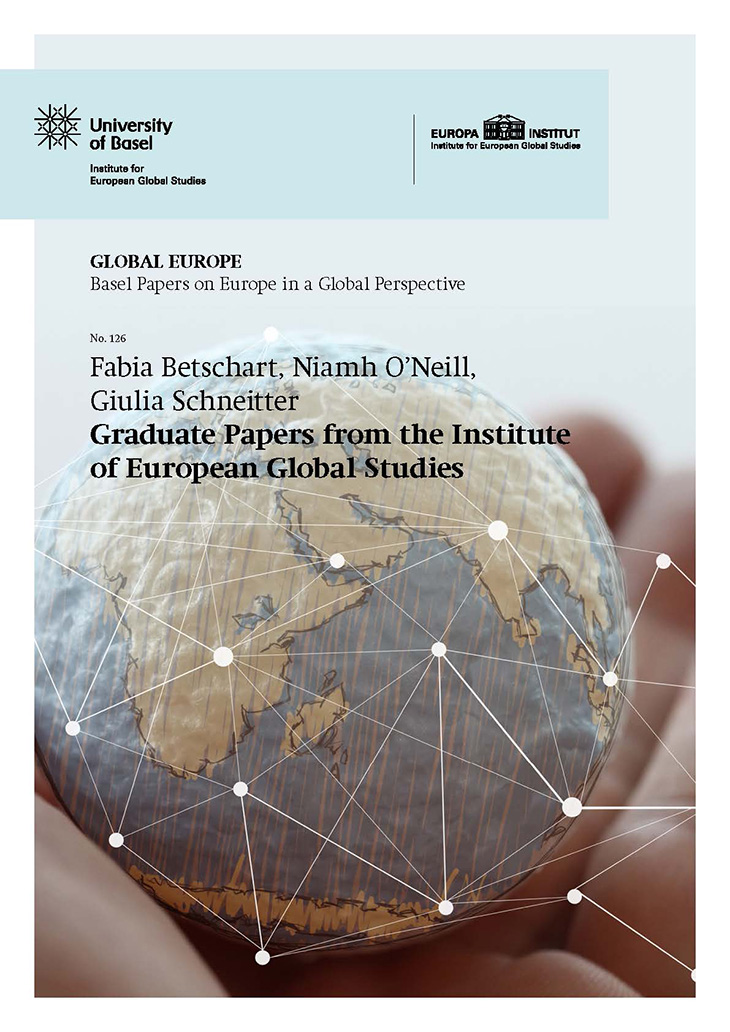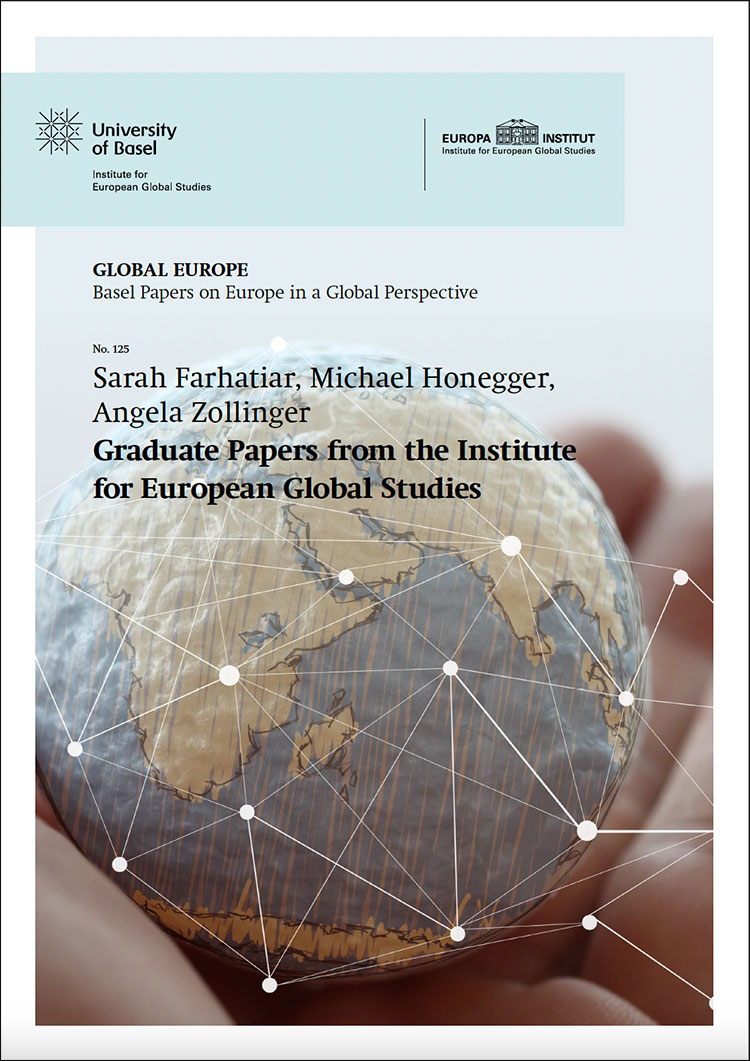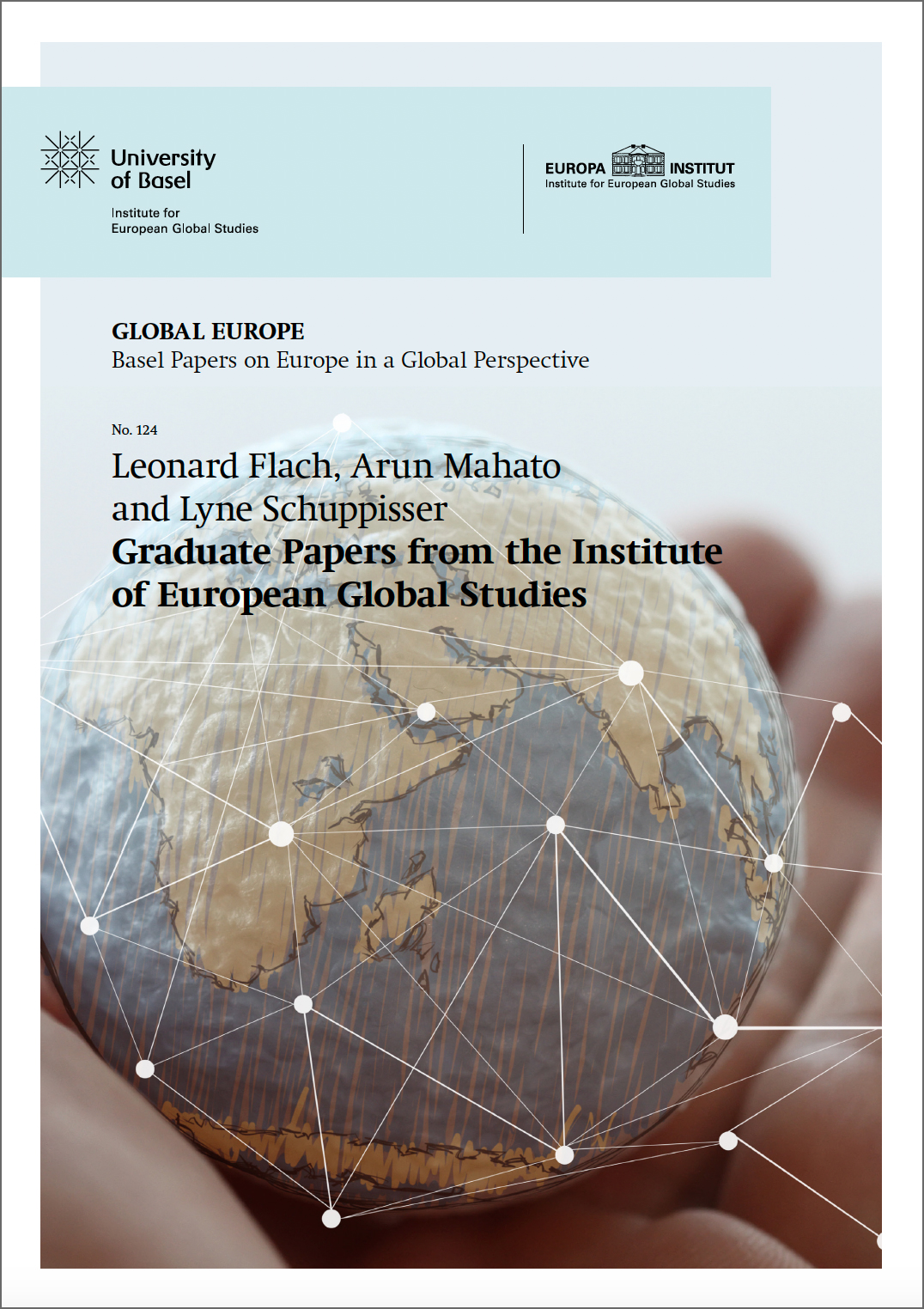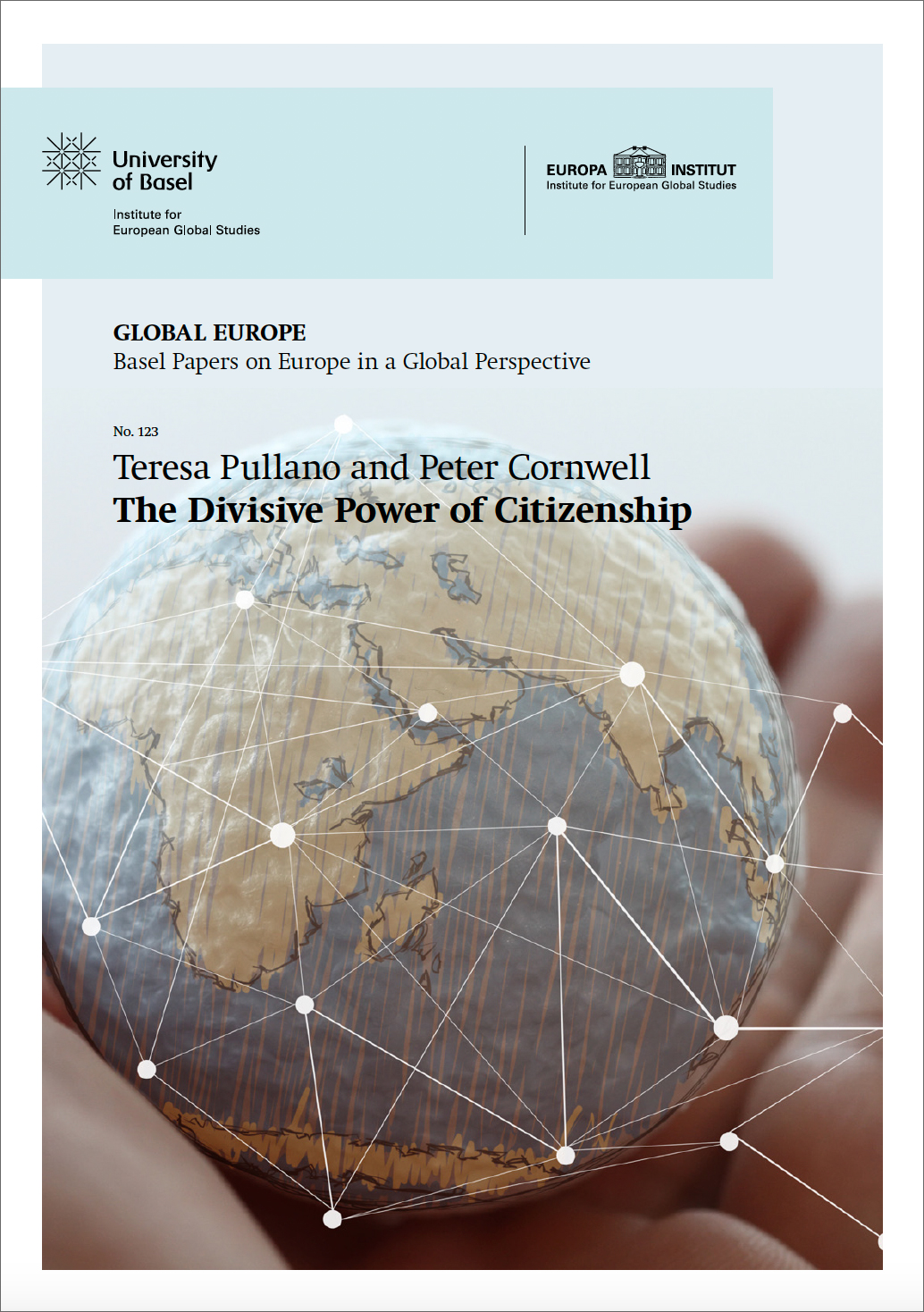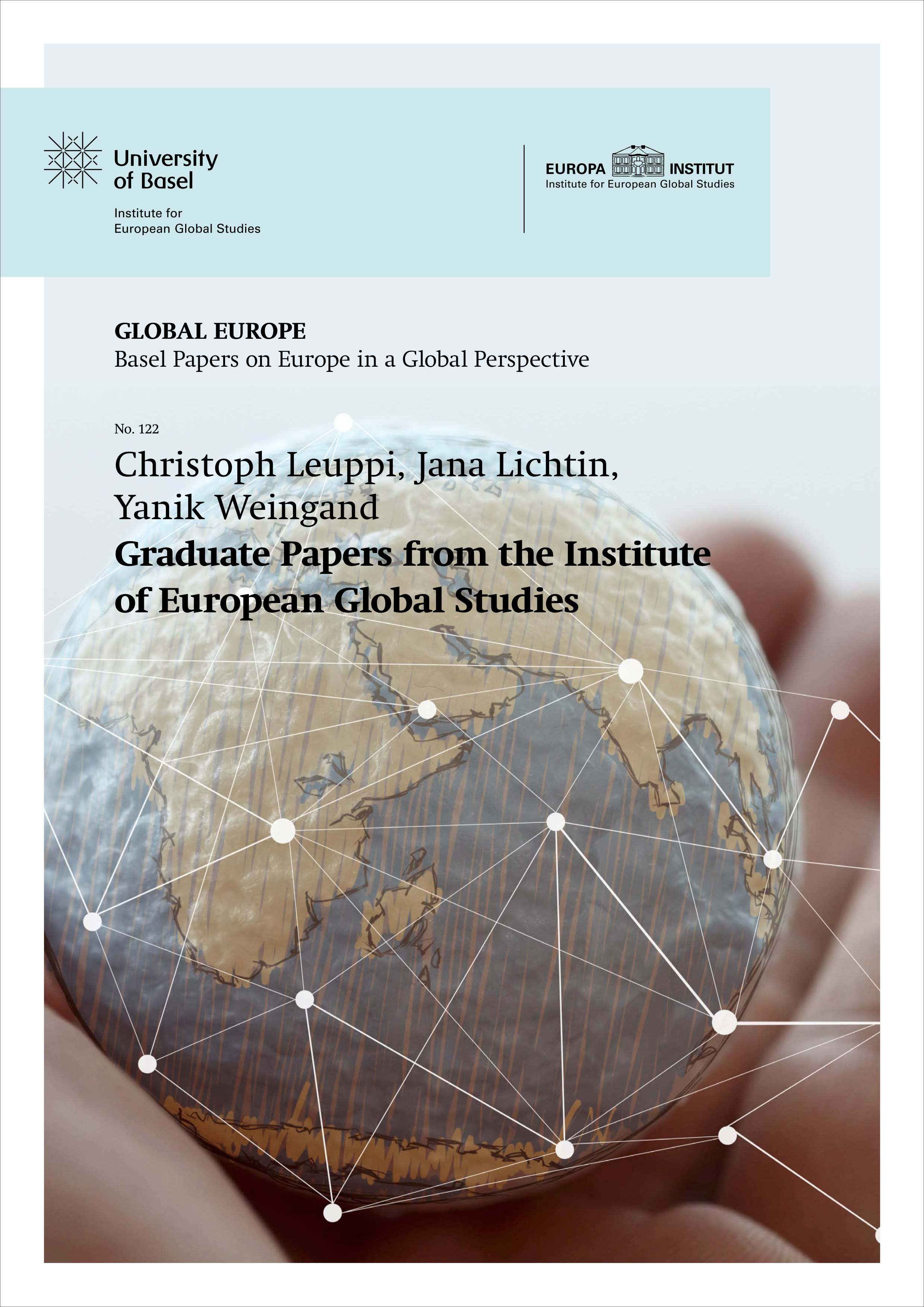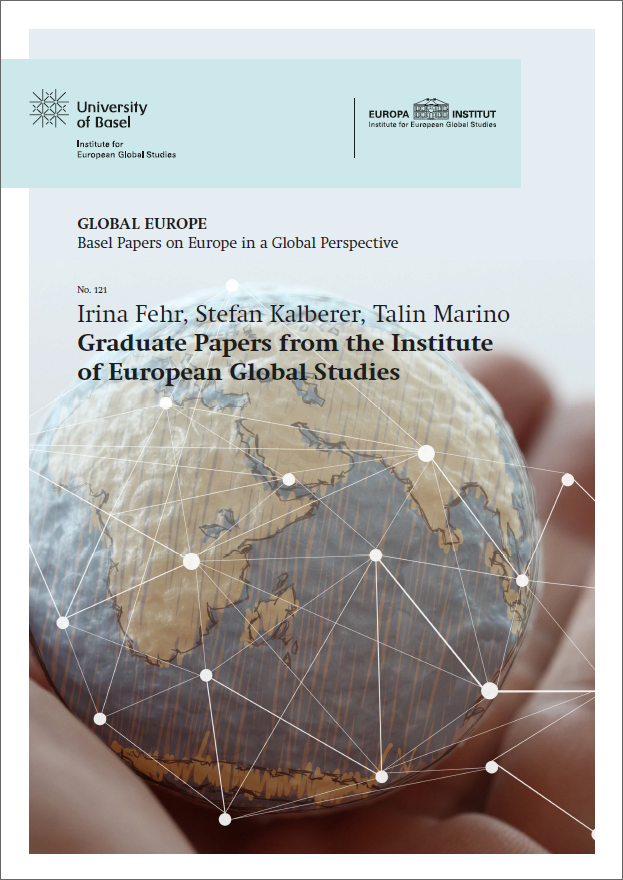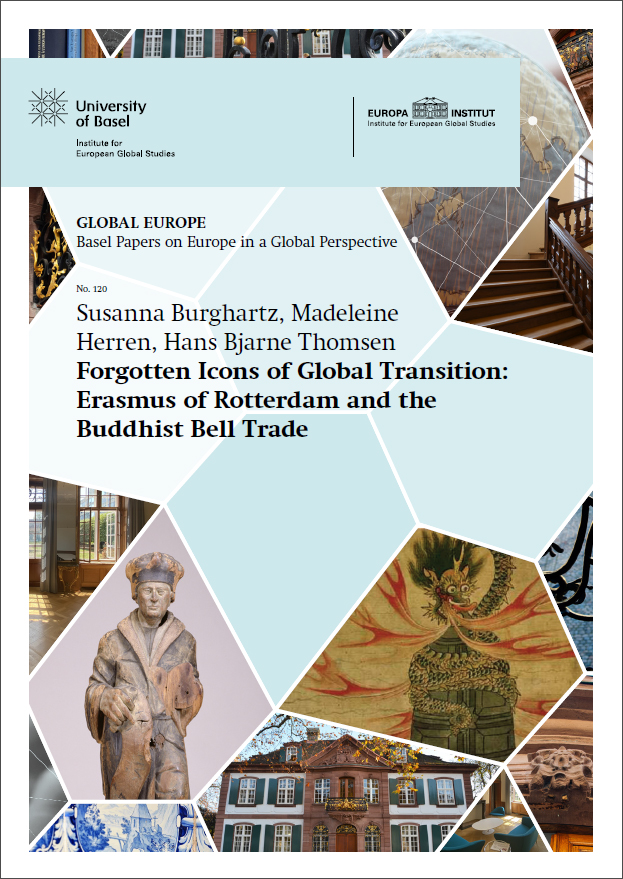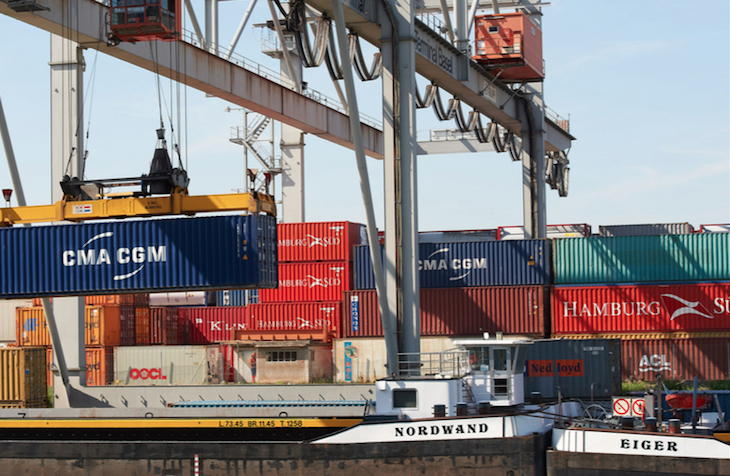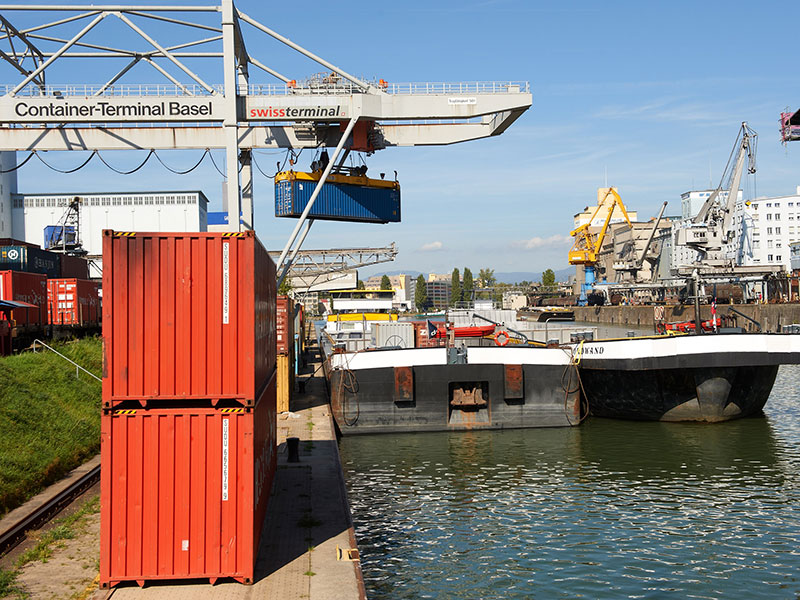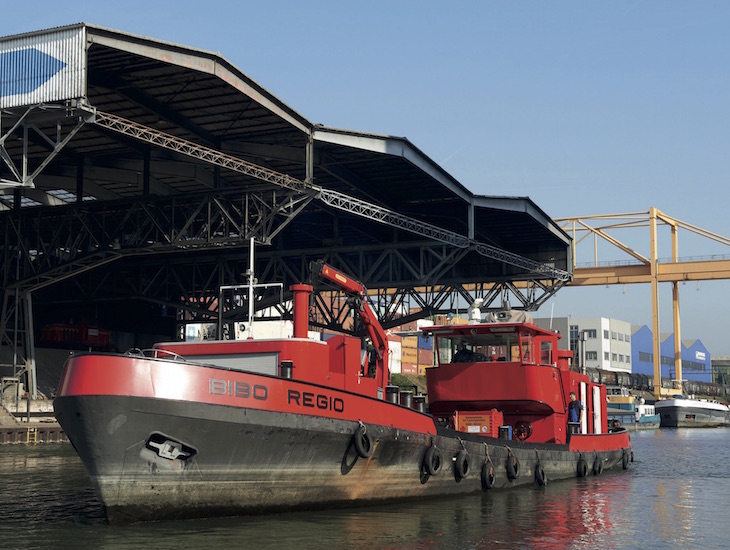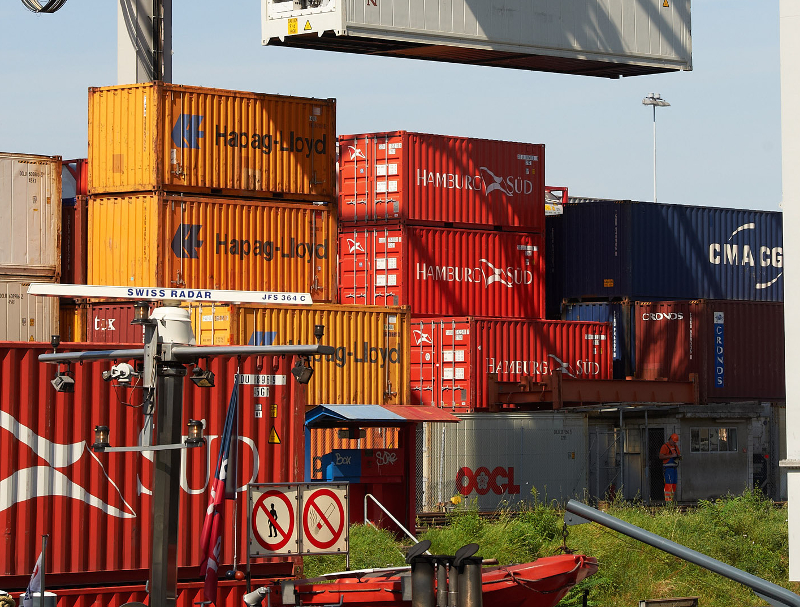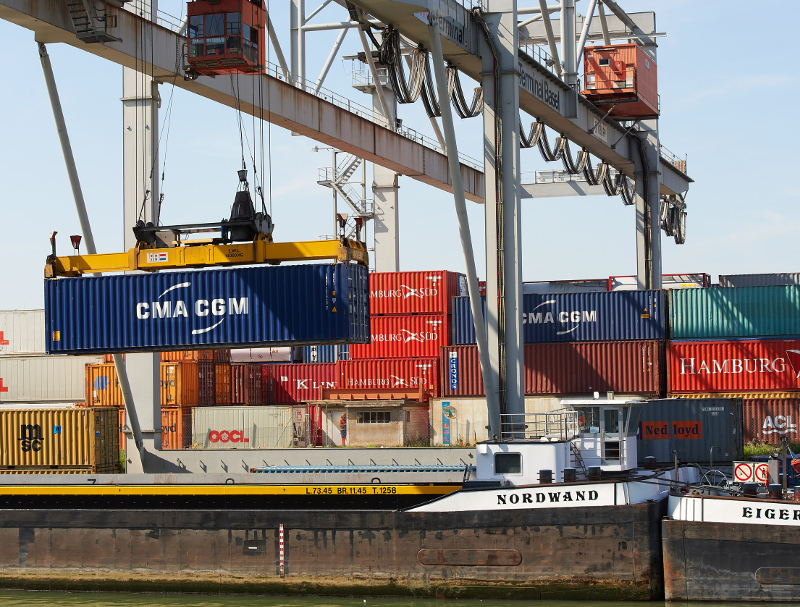Breadcrumb
- Home
- Archiv
Archiv
-

A Discussion on “European Global Studies”
Nr. 116 (2018)Responding to transformations often described by the shorthand expression “globalization,” the Europainstitut changed its English name in 2013 to Institute for European Global Studies. Five years later, members of the Institute came together to discuss their different views and assess the aims of European Global Studies. Among the points touched upon are the importance of different disciplinary backgrounds in this endeavor, the question of interdisciplinarity and/or transdisciplinarity, as well as the perceived challenges and promises with regard to the future of European Global Studies.
The latest issue of the E-Journal «Global Europe» contains a transcript of parts of this discussion, edited and framed with introductory paragraphs in order to increase readability and facilitate comprehension. The purpose of publishing this discussion on European Global Studies is to clarify the current agenda of the Institute, to showcase the plurality of approaches pursued under its roof, and also to outline its innovative potential for the Social Sciences and the Humanities in the 21st century.
-

Care-takers and place-makers: old age and urban regeneration in Patan, Nepal
Nr. 115 (2018)This article considers ageing in cities of the Global South, with a particular focus on urban transformation and place-making in the old city center of Patan, Kathmandu Valley. Building upon discussions evolving around concepts such as ‘active ageing’, ‘environmental gerontology’ and ‘age-friendly cities’, terms largely coined in northern America and western Europe, the article addresses their productivity – and challenges – when applied in the case of Nepal. It considers a larger field of ageing in the realm of transcultural place-making, since the contextualization includes global circulations of ideas and practices related to cultural heritage, transnational migration and urban transformation through economic liberalization. The ethnographic material collected between 2014 – 17 among Newar senior residents is discussed with respect to questions of ownership, participation and responsibility. It highlights the entangled relationship of socio-religious relations and built environment, as well as intangible heritage, seeking to stress the importance of ephemeral and interstitial spaces that do not necessarily resonate with ‘global’ concepts of public and private, wellbeing and development.
-
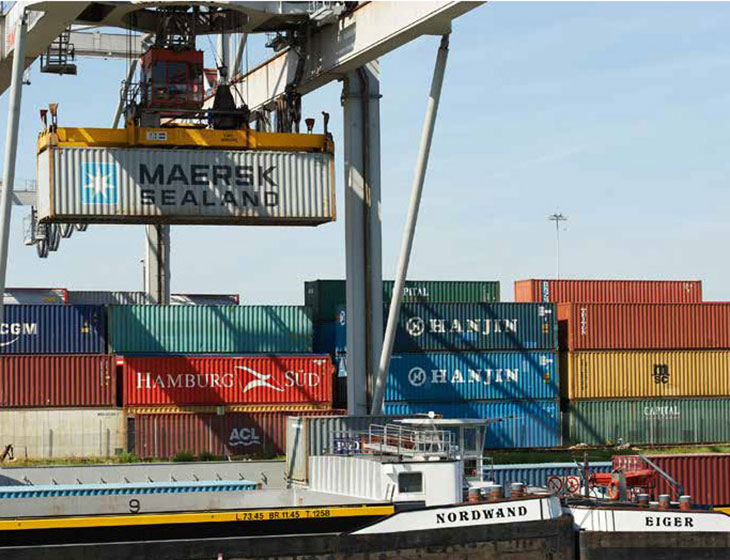
Nr. 112 (2016): Europe in the World after the Crisis: A Relational Approach
The economic crisis that has invested Europe since 2008 and the political crisis that peaked in the hot Greek summer of 2015 exposed the fractures and conflicts within the EU, but also within Europe at large. Arguably, this has led to a repositioning of Europe in the world, which is still ongoing. This reconfiguration of the internal European space happens in connection with the redefinition of the relations that Europe entertains with its outside (Moisio et al. 2013). Also, the crises have shown that ‘Europe’ means different things in different places. In this paper, it is argued that classical European studies need to be rethought accordingly: it is no longer possible (and perhaps never was) to conceive of Europe in hermetic categories, but European space and politics need to be re-conceptualized as heterogeneous and uneven, and this always in connection with the transformations happening beyond the artificial idea of Europe as a defined continent (Manners, 2012). Following the call of Jean and John Comaroff (J. Comaroff & J. L. Comaroff 2012), this paper argues that there is a need to look at transformations in contemporary Europe as a consequence of restructuring happening in other parts of the world. The uneven development characterizing today’s Eurozone may be read as a return of colonial relations or unfettered capitalism to Europe. -
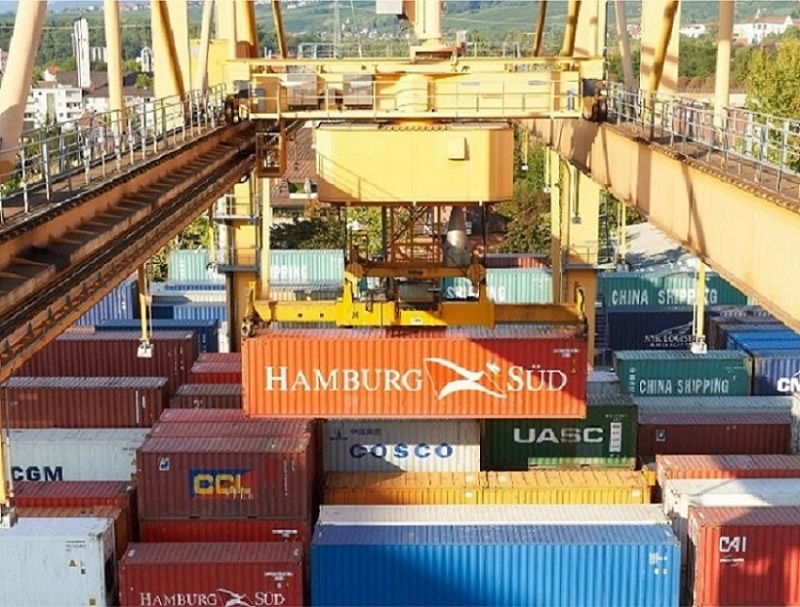
Writing History on their Own: War, Identity, and the Oral History of the “Old China Hands”
Nr. 110 (2015)This article uses the oral history project of the Old China Hands collected by the California State University at Fullerton to illustrate how oral history serves as the vehicle of identity-making. The term Old China Hands first referred to long-term British settlers engaged in the commercial, diplomatic and missionary arenas in nineteenth-century China. During the Second World War, citizens of the Allied nations were interned in the Japanese camps, which then became the common memory for foreign settlers in China. Not until the 1980s did those former civilian internees begin to reconnect with each other and share their stories in public; the oral history project of the Old China Hands was one such effort. Focusing on the organization, facilitation and contextualization of the oral history project, this article will discuss how the recollection of wartime experience became a process of identity-making.


